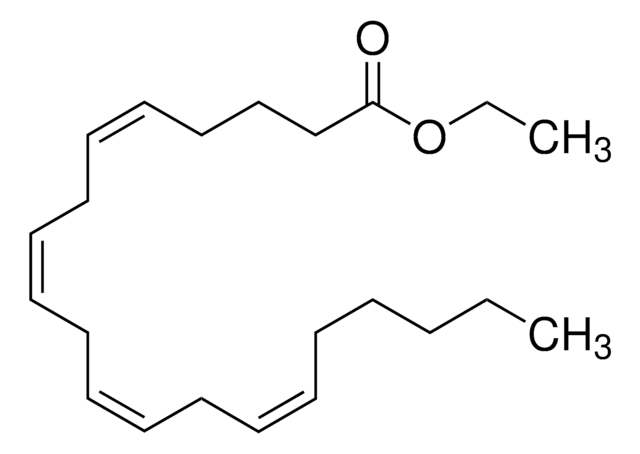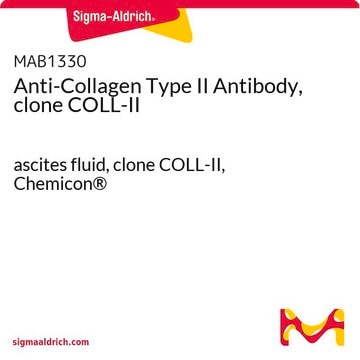AB761
Anti-Collagen Type II Antibody
Chemicon®, from rabbit
Synonym(s):
Anti-Anti-ANFH, Anti-Anti-AOM, Anti-Anti-COL11A3, Anti-Anti-SEDC, Anti-Anti-STL1
About This Item
Recommended Products
biological source
rabbit
Quality Level
antibody form
affinity isolated antibody
antibody product type
primary antibodies
clone
polyclonal
purified by
affinity chromatography
species reactivity
human
manufacturer/tradename
Chemicon®
technique(s)
ELISA: suitable
immunocytochemistry: suitable
immunohistochemistry: suitable
western blot: suitable
NCBI accession no.
UniProt accession no.
shipped in
wet ice
target post-translational modification
unmodified
Gene Information
human ... COL2A1(1280)
Specificity
Cross Reactivity Percent
Human collagen type II 90%
Human collagen type I, III, IV, V <1%
Human plasma proteins do not interfere with binding to collagen.
Immunogen
Application
Indirect immunofluorescence on cryostat sections or cultured cells 1:10-1:20
Western Blot 1:100
Optimal working dilutions must be determined by the end user.
Cell Structure
ECM Proteins
Physical form
Product is liquid in 0.15M sodium chloride, 10mM sodium phosphate pH 7.5 with 0.1% mannitol and 0.1% dextran as stabilizers. No preservative.
Storage and Stability
Legal Information
Disclaimer
Not finding the right product?
Try our Product Selector Tool.
Signal Word
Danger
Hazard Statements
Precautionary Statements
Hazard Classifications
Repr. 1B
Storage Class Code
6.1D - Non-combustible acute toxic Cat.3 / toxic hazardous materials or hazardous materials causing chronic effects
WGK
WGK 2
Flash Point(F)
Not applicable
Flash Point(C)
Not applicable
Certificates of Analysis (COA)
Search for Certificates of Analysis (COA) by entering the products Lot/Batch Number. Lot and Batch Numbers can be found on a product’s label following the words ‘Lot’ or ‘Batch’.
Already Own This Product?
Find documentation for the products that you have recently purchased in the Document Library.
Our team of scientists has experience in all areas of research including Life Science, Material Science, Chemical Synthesis, Chromatography, Analytical and many others.
Contact Technical Service









